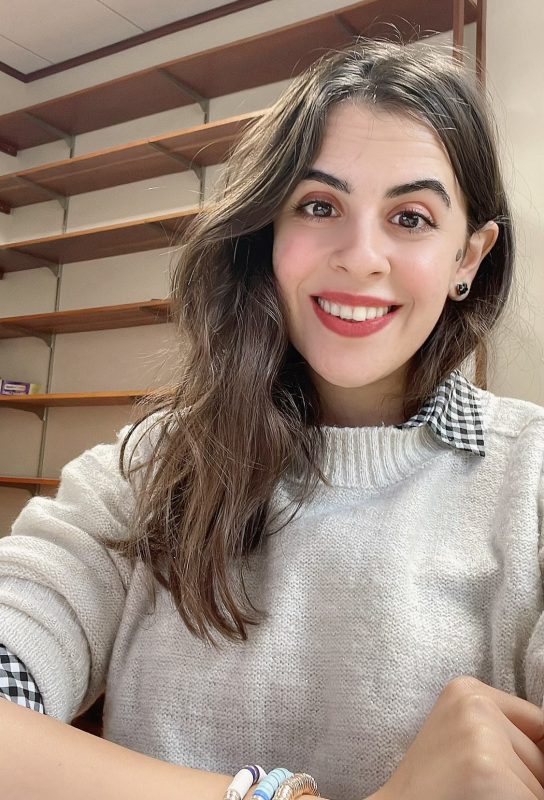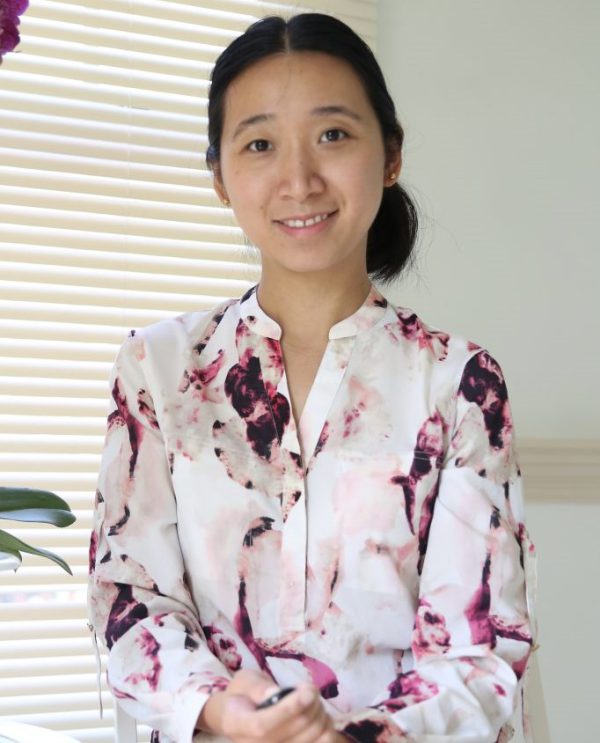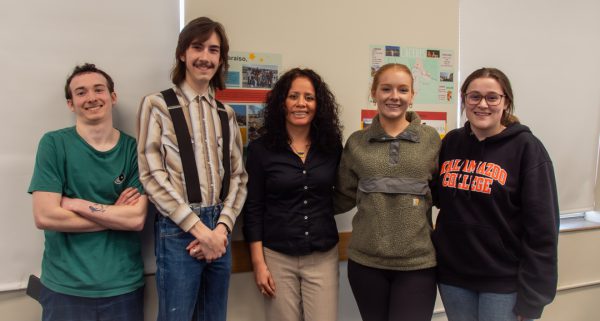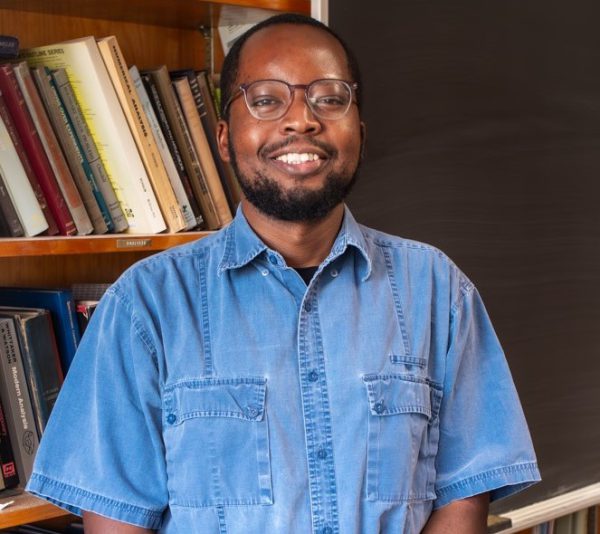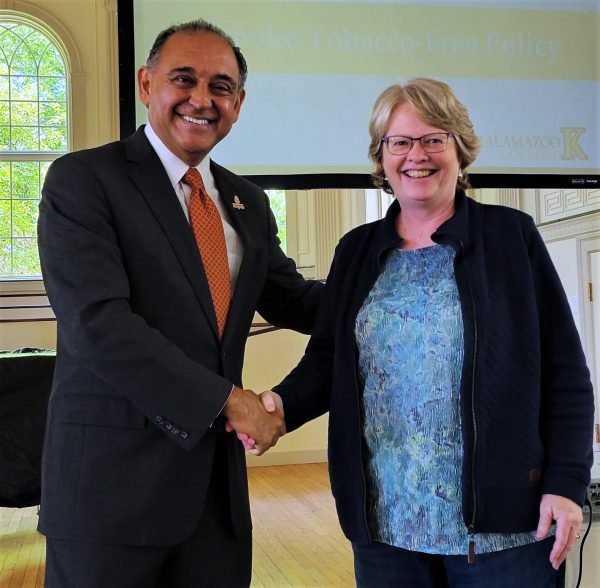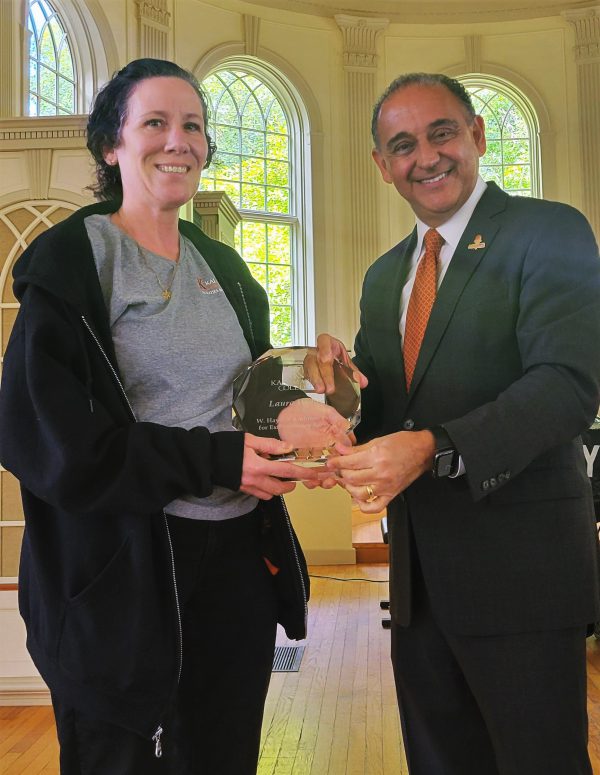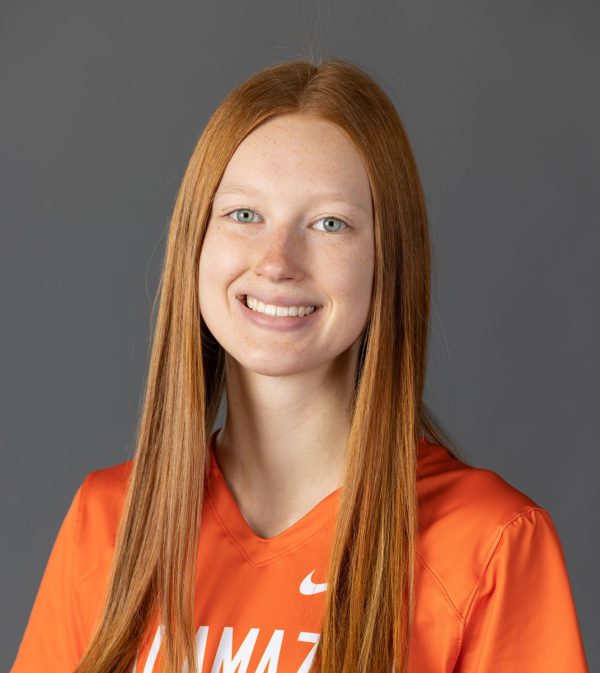Kalamazoo College student Joe Caton ’26 has turned his lifelong interest in radio technology into an innovative conservation project at Sarett Nature Center in Benton Harbor, Michigan. For his Senior Integrated Project (SIP), Caton built a low-cost telecommunications system to help the center monitor its population of Eastern box turtles.
Sarett is home to several types of turtles, and some, including the Eastern box turtle, are listed as threatened species in the state thanks to humans changing their habitats and predators threatening their safety.
Eastern box turtles play subtle but significant roles in their ecosystems. As omnivores, they help control insect populations and disperse seeds from berries and other wild plants. Their presence affects the food web as both consumers and prey, and their nesting habits intersect with larger environmental issues. At Sarett, turtles have contributed to booming raccoon populations, which can overconsume eggs and disrupt long-term turtle survival.
Sarett staff and volunteers have long tracked the reptiles using older analog equipment that emits radio pings, requiring searchers to walk toward the sound to locate individuals.
Caton, who is a computer science major with a telecommunications background, saw an opportunity to modernize the process and make it more accessible for conservation groups with limited resources.
“Once I found out Sarett was still tracking these turtles, I reached out to see if I could help,” he said. “The receiver technology was the area with the least work being done, so that’s where I focused.”
Caton sourced a software-defined radio device called a Hack RF, which can detect signals across a wide frequency range. He paired it with a screen for visualizing the turtle transmitters’ radio signals and built a homemade antenna using PVC pipe and a metal tape measure. When he and Sarett staff tested the system in the field, they were able to match pings to specific turtles based on recorded frequencies.
The equipment offers Sarett a flexible, open-source alternative to commercial radio trackers, which are costly and difficult to replace or replicate. Caton’s prototype can be produced at a fraction of the cost by printing circuit boards from existing online plans, making the approach scalable for other nature centers, research projects or youth-education programs.
Although Caton’s role focused on technology, he says his work has changed how he thinks about conservation.
“I hadn’t given a lot of thought to how computer science could be used this way,” he said. “Now I realize you don’t just have to use tools that already exist, you can make them yourself and tailor them to the work.”
Caton grew up in Three Rivers, Michigan, and first attended Glen Oaks Community College in nearby Centreville. He originally planned to pursue another degree path, but when Glen Oaks launched a computer science and cybersecurity program in 2020, he became one of its first computer science students. After completing his associate degree, Caton worked for a few years before deciding he wanted to finish a bachelor’s degree.
He had always been intrigued by K.
“When I was younger, I just wanted to go to K because everyone I knew was going to Western (Michigan University) and I wanted to be different,” Caton said with a laugh. “But as I got older and actually started reading about it and hearing graduates’ stories, it sounded like a place I would actually want to go.”
On a whim, he applied to K, assuming it would be too expensive. But the opposite proved to be true.
“I got this financial aid package in the mail that made it not only an option, but the cheapest option,” he said. “That pretty much answered the question for me.”
As a non-traditional transfer student at age 40, Caton expected to feel out of place at K. Instead, he again was surprised.
“The only person who ever brought up my age was me,” he said. “Once I stopped mentioning it, nobody else did either. Nobody looked at me funny or treated me differently. That made it a lot easier to just be a student.”
He quickly connected with computer science faculty including Professor Pam Cutter and Associate Professor Sandino Vargas-Pérez. Their accessibility and encouragement built his confidence to take on projects like the one at Sarett. Caton has also worked on campus in Media Services while balancing coursework and his home life.
Eventually, his SIP provided opportunities that Caton didn’t expect. He has been networking with professionals at the intersection of ecology and technology, and he plans to continue refining his prototype with Sarett. Using a Raspberry Pi—which is a low-cost, credit-card-sized computer—he hopes to combine radio tracking with image-recognition software being developed by WMU students to identify turtles by their unique shell patterns.
Caton’s SIP is complete, but the project continues and so does his enthusiasm.
“If you assume something like the conservation of Eastern box turtles doesn’t matter just because you don’t see the connection right away, you’re going to miss something important,” he said. “We don’t always know what role a species plays until it’s gone. That’s why this work matters.”
Q&A with Sarett Nature Center
Executive Director Nate Fuller
Sarett Nature Center—less than an hour from Kalamazoo College between Benton Harbor and Coloma—is a nonprofit conservation organization dedicated to providing quality environmental education to the community. It has more than 1,000 acres along the Paw Paw River and is home to several state and federally endangered animals in addition to a rich variety of flora and fauna, representing much of what can be found in southwest Michigan. Children are free and admission is $3 for adults who want to hike the trails and visit the welcome center, which has animal displays and feeding stations that are enjoyable for all ages.
Executive Director Nate Fuller answered some questions for us about the nature center, the importance of eastern box turtles and Joe Caton’s contributions to their conservation efforts.
Question: Why are eastern box turtles important within their ecosystems?
Answer: Eastern box turtles are important because they act as seed dispersers, regulate prey populations, and serve as an indicator species for environmental health. Their role in dispersing seeds helps maintain plant diversity, while their omnivorous diet helps control insect and other small prey populations. Because they are so sensitive to changes in their environment, their presence or absence can signal the overall health of their woodland, wetland and field habitats.
Q: How threatened are these turtles?
A: Eastern box turtle populations are declining at all levels—nationally, regionally and locally. They can be found across much of the eastern United States, but they have some level of protected status in nearly half of the states where they’re found. In Michigan, the eastern box turtle was recently moved from “special concern” to “threatened” status due to their increased decline.
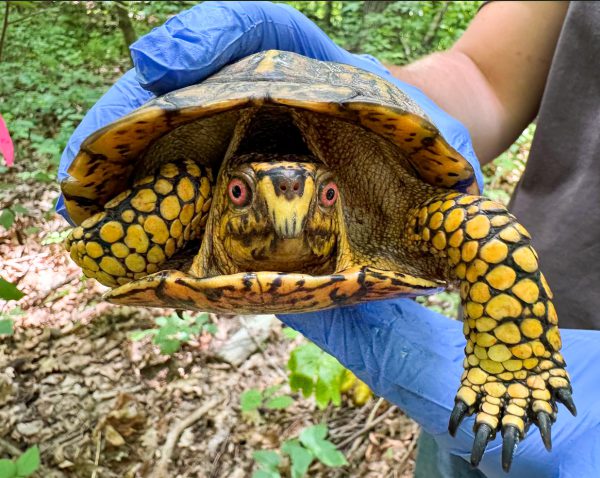



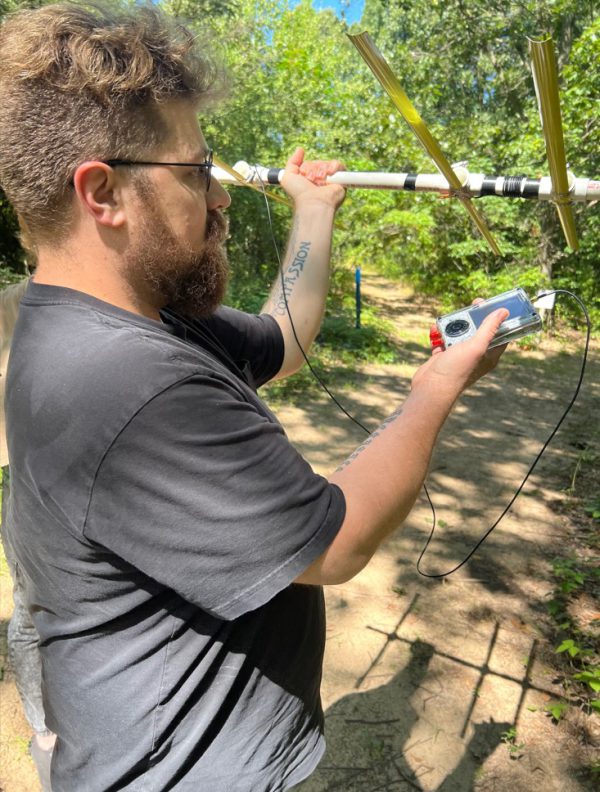
Q: Why is it important for Sarett to protect them?
A: Box turtles seem to be doing much better at Sarett Nature Center than anywhere else that they’re studied. By studying Sarett’s population, we hope to better understand what they need to be successful. Also, Sarett’s population is large enough that we have an opportunity to study their behaviors in a way that just isn’t possible at sites with smaller populations.
Q: What hands-on work is being undertaken at Sarett to help these turtles?
A: Work started a few years ago when Sarett hired John Rutger and his turtle dogs to help us find turtles. The idea was to demonstrate how working dogs help with conservation. We had no idea how many turtles he would find! The dogs found more than 60 turtles in four days at the nature center, and we had an inkling we were onto something special. Over the years since, we’ve documented more with few repeats while drawing attention from conservation professionals and researchers.
Maarten Vonhof at Western Michigan University is overseeing multiple research projects that are looking at genetics, shell patterns, habitat use, range sizes, nest-site selection, scent communication, disease and social behaviors. Watervliet High School Robotics Club members are working on micro-GPS trackers to add to turtles that already have transmitter beacons on them to better understand their daily movements. Sarett staff and volunteers are working on invasive plant species control to improve nesting and foraging habitats. And we are making plans for students, staff and volunteers to help identify, mark and monitor box turtle nests this upcoming spring.
Visitors to the nature center have been helpful in documenting box turtles. We also worked with WMU to set up an app for anyone who finds a box turtle to add them to our project. They can use their phone to take its picture and upload it to our database so we can build up our image catalogue and track locations of individuals.
Q: Has Sarett reached any important milestones in protecting the turtles?
A: We have hit some impressive milestones regarding the numbers of individuals we’ve identified at Sarett Nature Center. After four years of one-week surveys, we identified more than 300 individuals. After four weeks of intensive surveys in 2025, we were able to add more than 250 individuals to our inventory! We are still working on the data, but it looks like we have 600 individuals catalogued, which is many times more than any other single location documented anywhere.
The bloodwork collected this summer marks the largest genetic assessment of a box turtle population ever. The scent data collected is also the largest ever and will be the most comprehensive study ever done looking at box turtle communication via scent.
Q: How would you rate Joe Caton’s work and the importance of it in Sarett’s efforts?
A: Joe’s work has the potential not just to make the research being done on Sarett’s box turtle population more effective and efficient, but it could also be a game changer for conservation efforts for all projects using telemetry.
The costs of tracking are not just in designing the equipment used. A bigger expense comes from the time it takes humans to use the equipment, everything from training on how to use it to time in the field spent tracking down the animals. With more than 70 transmitters, it’s easier and more efficient to find transmitters in the field, and it will save us thousands of dollars. If you project that out to others using this technology, it could be a huge benefit for wildlife conservation.


















